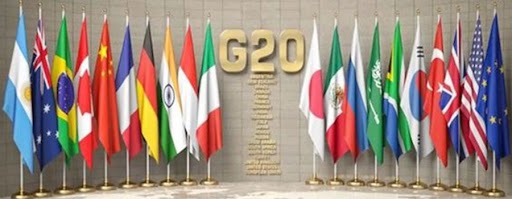Welcome to our exploration of global economic strategy!
These powerful countries are creating waves with their creative ways and diplomatic prowess, from economic globalization initiatives to international market techniques.
Let’s look at how their trade and economic strategies affect not just their local economies but also have global ramifications.
What is the G-20?
This elite group brings together leaders from some of the world’s most influential economies to discuss global economic issues and coordinate policies.
Together with other members such as Brazil, Russia, South Africa, Canada, Australia, and several European nations (just to name a few), they form a formidable force in shaping global economic strategies.
The G-20 acts as a platform for member countries to engage in open dialogue about pressing economic challenges facing not only themselves but also the entire world.
One unique aspect of this forum is its inclusivity – bringing together both developed economies and emerging markets under one roof.
It encourages comprehensive discussions that consider varying levels of economic development across nations.
While decisions made by the G-20 do not hold binding authority over member countries’ domestic policies per se (as each nation remains sovereign in making its own choices), their collective influence cannot be underestimated.
The outcomes reached during these gatherings can set trends for international market strategies or serve as catalysts for change within individual economies.
negotiating agreements amidst diverse interests – all aimed towards navigating complex global
It’s a dynamic forum that serves as a crucial platform for economic
The Different Nations in the G-20
The G-20, also known as the Group of Twenty, is an international forum that brings together the world’s major economies to discuss and coordinate global economic policies. It consists of 19 countries plus the European Union, representing over 80% of global GDP and two-thirds of the world’s population.
The 19 countries are Argentina, Australia, Brazil, Canada, China, Germany, France, India, Indonesia, Italy, Japan, the Republic of Korea, Mexico, the Russian Federation, Saudi Arabia, South Africa, Turkey, the UK, and the US.
The Global Economic Strategies of the G-20
The G-20, consisting of 19 countries plus the European Union, is an international forum that brings together leaders from some of the largest economies in the world. These nations have recognized the importance of collaboration and cooperation to address global economic challenges.
Each member country has its own unique economic strategy, but they all share a common goal: to promote sustainable growth and stability in their respective economies. This involves implementing policies that foster innovation, encourage investment, and support job creation.
One key aspect of these strategies is economic globalization.
G-20 nations recognize that interconnectedness among economies can lead to mutual benefits through increased trade and investment.
Another important focus for the G-20 is addressing global economic trends.
By understanding these trends, they can adapt their strategies accordingly to stay ahead in an ever-evolving global economy.
Recognizing that many challenges require collective action, member countries work together on issues like climate change mitigation, financial regulation reform, infrastructure development projects, and poverty reduction efforts.
In conclusion
The Global Economic Strategies of the G-20 are multifaceted and dynamic.
While each member country has its own unique approach based on its specific circumstances,
economic stability,
such as promoting economic globalization,
addressing emerging market approaches,
The Impact of the G-20 on the World Economy
The Impact of the G-20 on the World Economy
As we have delved into the global economic strategies and initiatives of the G-20, it becomes apparent that this influential group has a significant impact on the world economy.
Through their collective efforts and cooperation, they strive to address pressing issues and promote sustainable growth.
One of the key impacts of the G-20 is its ability to shape international market strategies.
By fostering dialogue and collaboration among member nations, they can create an environment conducive to trade and investment.
Their discussions and agreements influence fiscal measures, monetary policies, financial regulations, and other critical aspects that guide economies globally.
They coordinate efforts to prevent or mitigate financial crises while striving for inclusive growth that benefits all nations.
As developing economies gain prominence in today’s interconnected world, their perspectives are valued within discussions surrounding global economic challenges and opportunities.
Without explicitly stating “in conclusion,” it is clear that the G-20 holds immense significance when it comes to shaping global economic strategies.
From promoting economic globalization to influencing worldwide policies and fostering strategic finance initiatives – every action taken by this group reverberates throughout our interconnected world economy.
- By admin
- No Comments








